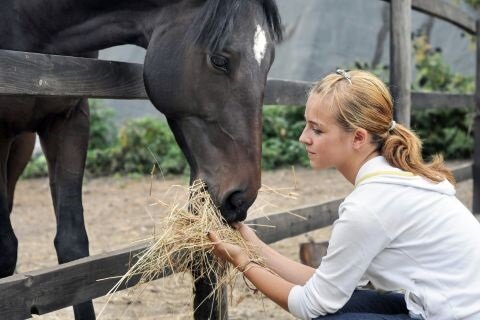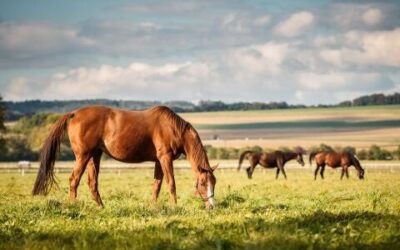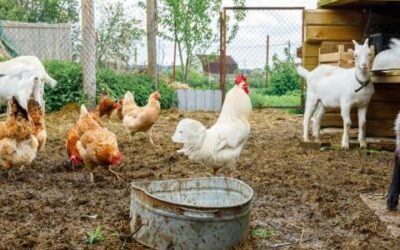
As our equine companions age, their nutritional needs undergo significant changes. Just like humans, senior horses require special attention to ensure they lead healthy and comfortable lives. Proper feeding is one of the key aspects of senior horse care, and understanding the unique requirements of aging horses is crucial. In this blog post, we’ll delve into some of the special considerations when feeding senior horses.
Dental Health
One of the most critical factors to consider when feeding senior horses is their dental health. Over time, a horse’s teeth naturally wear down, making it difficult for them to chew and digest their food properly. Dental issues are common in aging horses, leading to weight loss, colic, and other health problems.
To address this concern, it’s essential to schedule regular dental check-ups with a qualified equine dentist. They can identify and correct dental problems, such as sharp points, loose teeth, or missing teeth. Additionally, consider altering the horse’s diet by providing feed like timothy hay. This special senior horse feed is softer and more easily chewed, helping maintain a healthy body condition.
Reduced Digestive Efficiency
As a horse ages, their digestive system becomes less efficient at extracting nutrients from their food. This means that they may require a diet that is more easily digestible. One way to achieve this is by feeding senior horses high-quality forage, such as hay or haylage, that is cut at an appropriate maturity stage to ensure it’s not too fibrous or tough to digest. Forage should be the foundation of their diet, providing essential fiber and promoting gut health.
Proper Protein Levels
Contrary to some misconceptions, senior horses still need an appropriate level of protein in their diet. However, the type of protein and its digestibility become more critical considerations. Find senior feed for horses that contains high-quality protein sources, such as soybean meal, alfalfa, or linseed, which are more easily digestible and provide essential amino acids for maintaining muscle mass and overall health.
Joint Health
Arthritis and joint issues are common problems in aging horses. Proper nutrition can play a significant role in managing these conditions. Supplements like glucosamine and chondroitin sulfate can help support joint health. Omega-3 fatty acids, found in flaxseed or fish oil, have anti-inflammatory properties that can aid in reducing joint discomfort. Consult with your veterinarian to determine the best supplements for your senior horse’s specific needs.
Adequate Hydration
Ensuring senior horses remain well-hydrated is paramount to their health. Dehydration can lead to various problems, including impaction colic and kidney issues. Aging horses may not drink as readily as their younger counterparts, so it’s crucial to encourage water consumption. Some tips include offering warm water in cold weather, providing fresh water at all times, and monitoring your horse’s drinking habits closely.
Weight Management
Senior horses are prone to weight gain or loss, which can have serious health implications. Obesity can exacerbate joint problems and increase the risk of laminitis, while excessive weight loss can lead to weakness and susceptibility to illness. Regularly monitor your senior horse’s body condition and adjust their diet as needed to maintain a healthy weight.
Regular Veterinary Check-ups
Regular veterinary check-ups are crucial for senior horses. Your veterinarian can assess your horse’s overall health, recommend any necessary dietary changes, and monitor for age-related issues, such as Cushing’s disease or metabolic disorders. Working closely with your vet ensures your senior horse receives the best possible care throughout their golden years.
In conclusion, feeding senior horses requires careful attention to their unique needs. Dental health, digestive efficiency, protein levels, joint health, hydration, weight management, and specialized senior horse feeds all play pivotal roles in maintaining the well-being of your aging equine companion. By addressing these considerations and working closely with your veterinarian, you can ensure that your senior horse enjoys a happy, healthy, and comfortable retirement.




